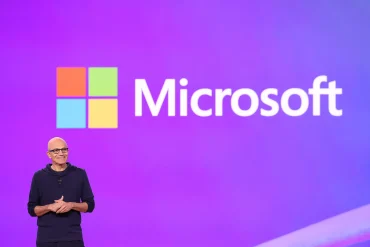
- AI Agents
- AI Automation
- AI Solutions
Microsoft Unveils AI Agents as Core Strategy at Build 2025
3 minute read

Microsoft’s Build 2025 Reveals Autonomous AI Agents Platform to Transform Enterprise Workflows and Reduce Administrative Tasks
Key Facts
- Microsoft unveiled AI agents as its next major growth driver at Build 2025, shifting from basic AI assistants to autonomous agent systems
- 70% of sellers’ time is currently spent on administrative tasks that AI agents can significantly reduce
- 46% of companies are already using AI agents for workflow automation, with 43% utilizing multi-agent systems
Introduction
Microsoft is revolutionizing its artificial intelligence strategy with a bold focus on AI agents, marking a decisive shift from traditional software products to dynamic AI-driven services. The company’s vision centers on developing sophisticated AI agents that function as personal assistants, capable of performing complex tasks with minimal human oversight.
Key Developments
At Build 2025, Microsoft revealed its strategic pivot toward AI agents as a cornerstone of future growth. The company is creating an ecosystem called the “open agentic web,” where AI agents can make decisions and execute tasks independently. This includes enterprise-grade agents designed for various contexts and multi-agent orchestration systems enabling collaborative problem-solving.
The Copilot ecosystem now features low-code capabilities, allowing organizations to customize AI models using their data and workflows without extensive technical expertise. Microsoft is also launching specialized reasoning agents for work-related tasks and establishing a centralized marketplace for agent distribution.
Market Impact
Microsoft’s comprehensive approach spans its entire technology stack, from Azure infrastructure to Windows operating system and Microsoft 365 applications. The strategy creates significant competitive advantages by implementing these technologies internally before market release, positioning Microsoft as both provider and primary user of these innovations.
According to The Information, this integration across platforms enables a cohesive agent ecosystem that enhances user experience through personalization and automation of routine interactions.
Strategic Insights
The company’s focus extends beyond simple automation to create an environment where multiple AI agents can collaborate, reason, and execute complex workflows. This approach addresses the significant inefficiency in current business processes, particularly in sales and administrative tasks.
Expert Opinions and Data
Research demonstrates the substantial potential for AI agents in business operations. With 70% of sellers’ time consumed by non-selling duties, AI agents present a clear opportunity for efficiency gains. The adoption rate is already significant, with 46% of companies utilizing agents for workflow automation and 43% implementing multi-agent systems for complex tasks.
Conclusion
Microsoft’s strategic investment in AI agents represents a comprehensive transformation of its business model and product offerings. The company’s integrated approach across its technology stack, combined with significant market adoption rates, positions Microsoft at the forefront of AI innovation in enterprise technology.








